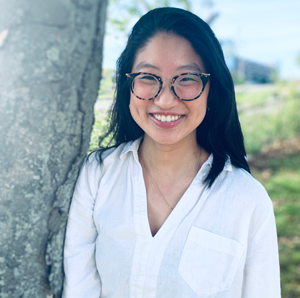
|
Fourth-year School of Medicine student SeungJu Jackie Oh was completing a dedicated research year in the Division of Plastic and Reconstructive Surgery when COVID-19 closed the medical school. Oh quickly shifted her focus to health care policy analysis, seizing a unique opportunity to address the need to protect health workers from infection. Volunteering to translate interviews and documents, she became first author on the Global Evidence Brief: Protecting Health Care Workers in South Korea During the COVID-19 Pandemic published by Ariadne Labs.
“Global health has been one of my interests since college. I’ve become more interested in health policy during medical school since seeing the direct impact of policy on patient care. Around that time, I came across Ariadne Labs, given its cutting edge work on health care innovation, and I have been an avid fan of its work ever since,” said Oh, who was born and raised in South Korea and immigrated to Boston as a teenager. “When COVID-19 was unfolding in Korea, Ariadne was recruiting students fluent in Korean for this project. I could not be more grateful to be able to wrap up my research year with this singular opportunity where I could learn so much about effective health systems and public policy.”
The research outlines how South Korea has successfully maintained one of the world’s lowest rates of COVID-19 infections in health care workers. The brief draws on findings from interviews with front line physicians and system leaders in South Korea, along with an in-depth review of national guidelines from Korea Centers for Disease Control and Prevention and hospital-level protocols.
Having been in Seoul in 2015 for a global health fellowship when South Korea was hit by the Middle East Respiratory Syndrome epidemic, which sickened many health care workers, Oh felt a direct connection to the project. The country has since redesigned its health system, reducing the risk for health care worker infection as evidenced by the research brief.
“Witnessing MERS firsthand, then being involved with this research and seeing the remarkable contrast five years later, I appreciated how far South Korea has come,” said Oh. “Researching Korea’s health policy coordination efforts while seeing how COVID-19 affected the United States has been eye opening.”
Ariadne Labs, a Boston-based center for health systems innovation, was founded by renowned surgeon, author and public health researcher Atul Gawande, MD, and has a mission to improve delivery of health care at critical moments.
“I learned a lot about agility and flexibility, the importance of bold crisis management and organizational grit in health care policy and practice—a lesson that I will take with me as I continue to grow both personally and professionally during my surgical training,” Oh said.
The study identified the five best practices for protecting health care workers from the SARS-CoV-2 virus employed by South Korea that can inform efforts in other countries: centralized triaging; hospital-level triaging; equipping and screening health care workers; limiting community spread; and adhering to basic public health practices.